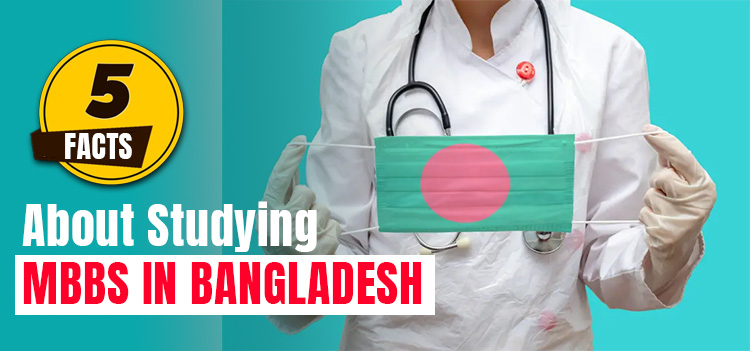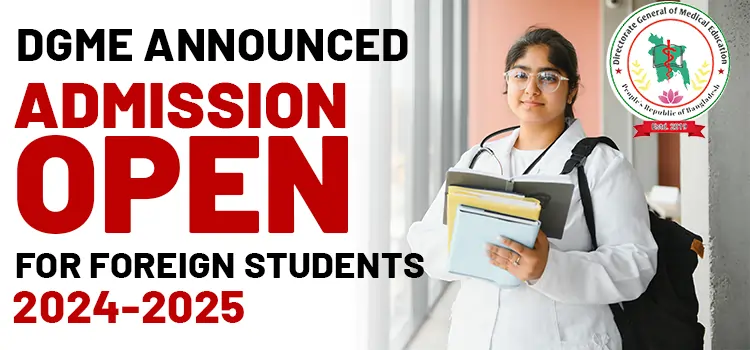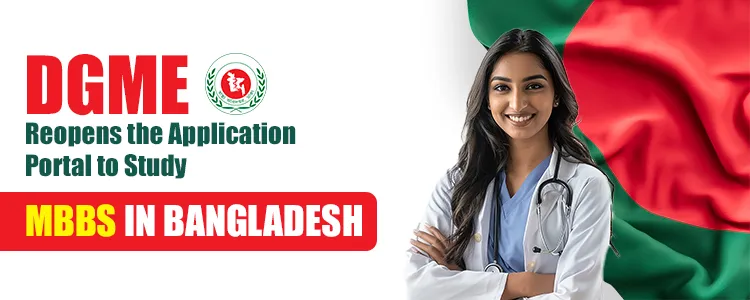Bangladesh has emerged as a prime destination for international students aspiring to pursue an MBBS degree. With its affordable tuition fees, high-quality education, and cultural similarities with neighboring countries like India, it's no wonder why more and more students are considering Bangladesh as a viable option for their medical education. Here, we'll dive into some lesser-known facts about studying MBBS in Bangladesh that make it a unique and attractive choice for aspiring doctors.
1. Globally Recognized Curriculum with English Medium of Instruction
One of the biggest concerns for students studying abroad is the language barrier. In Bangladesh, however, all medical courses for international students are conducted in English. This is particularly beneficial for students from English-speaking countries or regions where English is the primary language of instruction.
Moreover, the MBBS curriculum in Bangladesh closely follows international standards and is approved by notable accreditation bodies such as the World Directory of Medical Schools (WDOMS) and the National Medical Commission (NMC).
The curriculum integrates both theoretical knowledge and hands-on clinical training, ensuring students are well-prepared for global medical licensing exams such as the USMLE, PLAB, and FMGE. This alignment with global standards means that students studying in Bangladesh can seamlessly transition to medical practice or further studies in other countries.
2. Affordable Tuition and Living Costs
One of the major attractions of studying MBBS in Bangladesh is its affordability. While medical education in countries like the United States, the United Kingdom, or Australia can be prohibitively expensive, Bangladesh offers quality medical education at a fraction of the cost.
Furthermore, the cost of living in Bangladesh is relatively low, which can ease financial pressures on students and their families. Many universities also offer hostel facilities for international students, providing safe and affordable housing options close to campus.
3. High Success Rate in the FMGE Exam
For Indian students who have completed their medical studies abroad, the Foreign Medical Graduate Examination (FMGE) stands as a significant challenge. This exam is the mandatory licensing examination for foreign medical graduates who aspire to practice medicine in India.
Bangladesh boasts one of the highest FMGE passing percentages among countries that attract Indian MBBS students. This success can be attributed to the curriculum, which closely resembles that of the Indian medical system, and the teaching methodology, which focuses on both theoretical and practical knowledge.
Additionally, many universities in Bangladesh provide FMGE-oriented coaching to students, giving them a substantial advantage over students studying in other countries.
4. Bangladesh's Focus on Practical and Clinical Exposure
Unlike some medical schools where students don't get clinical exposure until their later years, Bangladesh places a strong emphasis on practical, hands-on experience from the start of the MBBS program. By the third year, students are already actively participating in clinical rotations and interacting with real patients in hospital settings.
Bangladesh has a high population density, which means hospitals are often bustling with patients, providing a wealth of opportunities for medical students to learn and practice. This diverse patient base exposes students to a wide array of cases, enhancing their diagnostic skills and clinical acumen. By the time students complete their MBBS, they have a strong foundation in clinical practice, preparing them to work confidently in a hospital environment.
5. Cultural Familiarity and Supportive Student Community
Bangladesh shares a similar culture, language, and lifestyle with neighboring countries, especially India. This cultural familiarity helps students adjust more quickly and comfortably to life in Bangladesh. Bengali, the official language of Bangladesh, is widely understood and spoken by many international students, particularly those from eastern parts of India. Moreover, Bangladeshi people are known for their warm hospitality, and international students often find the locals friendly and welcoming.
Additionally, many medical universities in Bangladesh host a substantial number of international students, creating a diverse yet close-knit community. Indian festivals such as Diwali, Holi, and Durga Puja are often celebrated on campus, giving students a taste of home even while they're studying abroad. Universities also have various student organizations and support groups that help international students with everything from academics to extracurricular activities, creating a vibrant and supportive environment.
Summing It Up
Studying MBBS in Bangladesh provides an opportunity for a high-quality, affordable medical education that prepares students for global medical careers. The country's focus on practical training, its FMGE/NEXT success rates, and the cultural similarities with India and other South Asian countries make Bangladesh a particularly appealing option for aspiring doctors.
For students looking for an alternative to the more expensive MBBS programs in Western countries or those who wish to study in an environment that offers familiar cultural elements, Bangladesh is a fantastic choice. As more students discover the benefits and unique aspects of studying MBBS in Bangladesh, it's likely to continue growing as a favored destination in the field of medical education.







